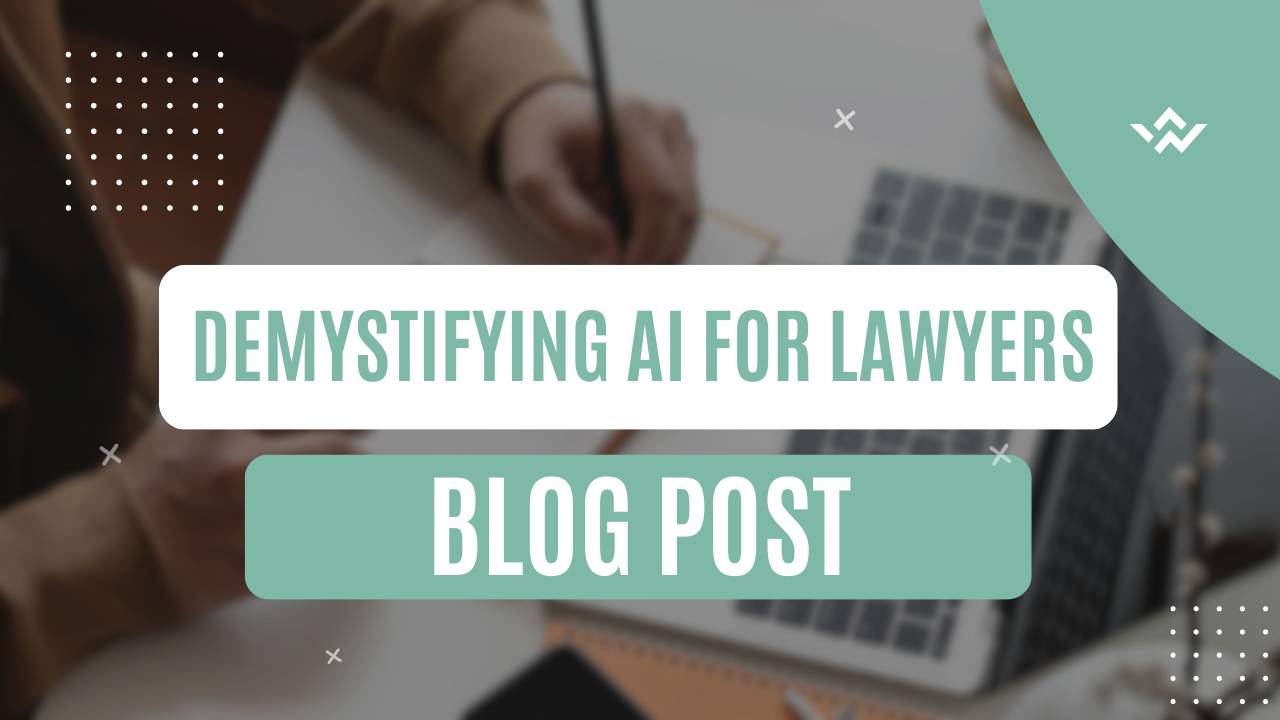Demystifying AI for Lawyers: How AI is Reshaping Legal Practices

In today's rapidly evolving legal landscape, technology plays an increasingly pivotal role in shaping the way lawyers work. One of the most transformative technologies making waves in the legal industry is Artificial Intelligence (AI). Despite its growing prevalence, AI can still seem like a complex and mysterious concept for many legal professionals. In this blog post, we'll demystify AI and explore how it is reshaping legal practices.
Understanding AI: A Primer for Lawyers
Let's start by breaking down what AI actually is. At its core, AI refers to machines or software systems that can perform tasks that typically require human intelligence. These tasks include learning, reasoning, problem-solving, perception, and language understanding. Contrary to common misconceptions, AI is not about creating machines with human-like consciousness or emotions, but rather about building systems that can process vast amounts of data and make intelligent decisions based on that data.
Practical Applications of AI in Legal Work
AI technology has a wide range of practical applications in legal practices, revolutionizing how lawyers conduct legal research, review documents, and analyze cases. For example, AI-powered search algorithms can quickly sift through vast amounts of legal information to find relevant cases and precedents, saving lawyers valuable time. Similarly, AI-based document review tools can automatically analyze and categorize documents, streamlining the discovery process in litigation cases.
Benefits of AI for Lawyers
The benefits of AI for lawyers are numerous. By automating repetitive tasks and streamlining workflows, AI helps lawyers work more efficiently and effectively. This not only saves time but also improves accuracy and reduces the risk of errors. Additionally, AI can help lawyers stay ahead of the curve by providing insights and predictions based on data analysis, enabling them to make more informed decisions and develop winning legal strategies.
Addressing Common Concerns
Despite its many advantages, AI in the legal industry also raises certain concerns and misconceptions. One common fear is that AI will replace human lawyers, leading to widespread job displacement. However, the reality is that AI is designed to augment human capabilities, not replace them. By handling routine tasks and freeing up time for lawyers to focus on higher-level strategic work, AI can actually enhance job satisfaction and professional fulfillment.
Embracing AI: Tips for Lawyers
For lawyers looking to embrace AI in their practices, there are several steps they can take to get started. First and foremost, it's essential to educate oneself about AI and its potential applications in the legal field. This may involve attending training programs, webinars, or workshops focused on AI for lawyers. Additionally, it's important to stay informed about the latest developments and trends in AI technology and to be open to experimenting with new AI tools and solutions.
Conclusion
In conclusion, AI is not a distant futuristic concept but a present-day reality that is already reshaping the legal industry in profound ways. By understanding the fundamentals of AI and exploring its practical applications in legal work, lawyers can position themselves for success in an increasingly digital world. By embracing AI as a valuable tool for enhancing their practices, lawyers can unlock new opportunities for growth, efficiency, and innovation.